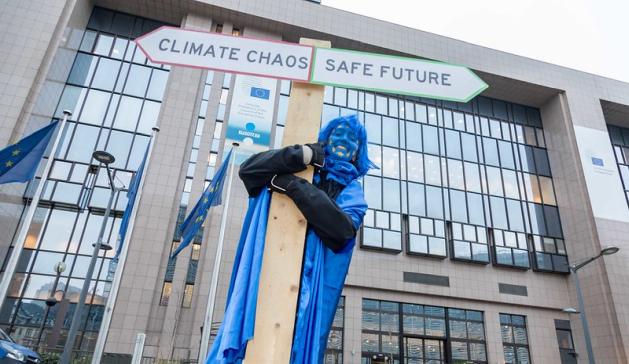Ahead of key interview, five questions Kamala Harris hasn’t answered yet | Elections News
On Thursday, US Vice President and presidential hopeful Kamala Harris will sit down for her first major broadcast interview since she became the face of the Democratic Party following President Joe Biden’s withdrawal from the race.
She will be joined by her running mate, Tim Walz, for the interview with CNN.
Until now, Harris has taken a cautious approach towards the press, much like Biden, who has held fewer news conferences and media interviews than any of the past seven US presidents, Axios reported, citing presidential scholar Martha Joynt Kumar.
Harris’s own sparse engagement with the media has come under scrutiny, especially from the Republicans. “She doesn’t know how to do a news conference; she’s not smart enough to do a news conference,” Republican challenger Donald Trump said during a news conference of his own on August 15.
To be sure, Harris has spoken on several key issues that polls suggest matter to American voters, in campaign rallies and policy speeches. But without the cross-questioning that an interview allows, the Democratic Party’s presidential nominee’s positions on critical subjects remain ambiguous.
So when is the interview and what are some of the questions Harris has yet to clearly answer?
When is Harris’s CNN interview?
Harris will speak to CNN’s anchor and chief political correspondent Dana Bash alongside the Democratic Party’s vice presidential candidate Tim Walz, the governor of Minnesota, at 9pm (01:00 GMT) on Thursday.
‘I won’t be silent’ on Gaza: How will she speak up?
On July 26, following a meeting with Israeli Prime Minister Benjamin Netanyahu in Washington, Harris pledged not to stay silent on the plight of Palestinians in Gaza.
“We cannot look away in the face of these tragedies. We cannot allow ourselves to become numb to the suffering. And I will not be silent,” she told reporters. Yet, simultaneously, she pledged unwavering commitment to Israel.
”I have had an unwavering commitment to the existence of the State of Israel, to its security, and to the people of Israel.”
US VP Kamala Harris says she expressed her ‘serious concerns’ to Israeli PM Netanyahu about the ‘scale of human suffering in Gaza.’ pic.twitter.com/1U0KErqiDL
— Al Jazeera English (@AJEnglish) July 26, 2024
In the month since she made this statement, however, Harris’s relative silence on Gaza has come under fire from critics who have questioned whether Harris’s policy on Israel’s war will be any different from Biden’s.
So far, the answer, many believe, seems to be a firm no.
Amid speculation that she might at least consider using restrictions on arms sales to Israel as leverage to convince the government of Prime Minister Benjamin Netanyahu to stop massacres of Palestinians, her adviser on national security made clear that Harris had no such plans.
“She does not support an arms embargo on Israel,” Phil Gordon, the adviser, said on August 8.
.@VP has been clear: she will always ensure Israel is able to defend itself against Iran and Iran-backed terrorist groups. She does not support an arms embargo on Israel. She will continue to work to protect civilians in Gaza and to uphold international humanitarian law.
— Phil Gordon (@PhilGordon46) August 8, 2024
At this year’s Democratic National Convention (DNC), which was held from August 19 to August 22 in Chicago, Harris once again simultaneously pledged support for Israel and expressed sympathy for Palestinians in Gaza.
However, the Democrats refused to allow a Palestinian American to speak at the convention, while the parents of an Israeli-American captive held in Gaza were allowed to take the stage.
Pro-Palestine protesters rallied outside the DNC venue on all three days but were blocked from marching too close to the venue by police. Many warned that they would not support Harris in the November vote unless she ends unconditional support for Israel.
How will she ban ‘price gouging’?
On August 16, Harris proposed a ban on “price gouging” by food suppliers and grocery stores.
Price gouging refers to dramatically raising prices to “unfair levels” in response to short-term high demand or scarcity – often following disasters, such as flooding. While several states already restrict the practice for some goods considered essential, there is no federal law barring it.
The proposal could be popular. High grocery bill inflation is a key concern for many voters. Under Biden’s administration, grocery prices have gone up by 21 percent as part of an inflation surge.
But Harris has not spelt out how exactly she would go about enacting this ban on price gouging, earning her backlash from political critics, as well as industry.
In a release last week, the Trump campaign called her plan an example of “communist price controls”.
Industrialists and economists also said the plan could do more harm than good.
Harris’s plan is vague, but a central part of it involves getting the US Congress to pass the first-ever federal ban on price gouging in food and grocery sectors, similar to legislation introduced by Democratic Senator Elizabeth Warren last year.
Yet political analysts point out that such legislation has almost no chance of passing in Congress — raising questions about the sincerity of Harris’s proposal.
Will she build a border wall?
Harris has flip-flopped on the topic of immigration.
During the DNC, she pledged that she would sign the now-defunct bipartisan border security bill that Trump wanted to terminate out of fears that it would benefit Democrats.
This bill would have allocated $20m towards security measures at the southern border with Mexico. The bill also set aside hundreds of millions of dollars for the construction of a border wall that was a signature project undertaken by Trump, and criticised by many Democrats.
Indeed, during Trump’s administration, Harris had called the idea of the wall “un-American”.
In 2020, she wrote in a Facebook post: “Trump’s border wall is a complete waste of taxpayer money and won’t make us any safer.”
When she declared her candidacy for her 2020 presidential race in 2019, she called the wall Trump’s “medieval vanity project”.
Besides pledging support for the bill that funds the wall, there are other indicators of Harris’s hardening stance on immigration, including campaign advertisements in which she supports the idea of more Border Patrol agents.
This shift comes amid efforts by Republicans to hold Harris responsible for a surge in undocumented migrants into the US, by describing her as Biden’s “border czar”.
NEW AD: On the border, the choice is simple.
Kamala Harris is fighting to fix our broken immigration system. Donald Trump is trying to stop her. pic.twitter.com/t200w8iAYv
— Kamala HQ (@KamalaHQ) July 30, 2024
What’s her position on Medicare for All?
When Harris was a senator for California, she signed on as a co-sponsor for Bernie Sanders’s Medicare for All legislation which called for a single-payer health insurance system to provide everyone in the US with comprehensive healthcare.
However, Harris’s economic plan this time is silent on Medicare for All. So, it is unclear if she still backs the idea or has dropped it entirely.
Will Harris ban fracking?
During her 2019 primary run, Harris had also pledged to ban fracking – the controversial technique of extracting oil and gas from shale rock by drilling the earth.
The practice causes earth tremors and has a high environmental cost since the procedure consumes large amounts of water, in addition to releasing methane, a greenhouse gas.
However, Harris seems to have taken a U-turn on fracking during her presidential campaign this year. In late July, her campaign officials confirmed that she will not seek to ban fracking if elected.
Trump had invoked her 2019 anti-fracking stance to criticise her.
The Biden administration allowed fracking. Harris herself has not made a public statement about whether or not she will ban fracking if she rises to the top job.
Check out our Latest News and Follow us at Facebook
Original Source







